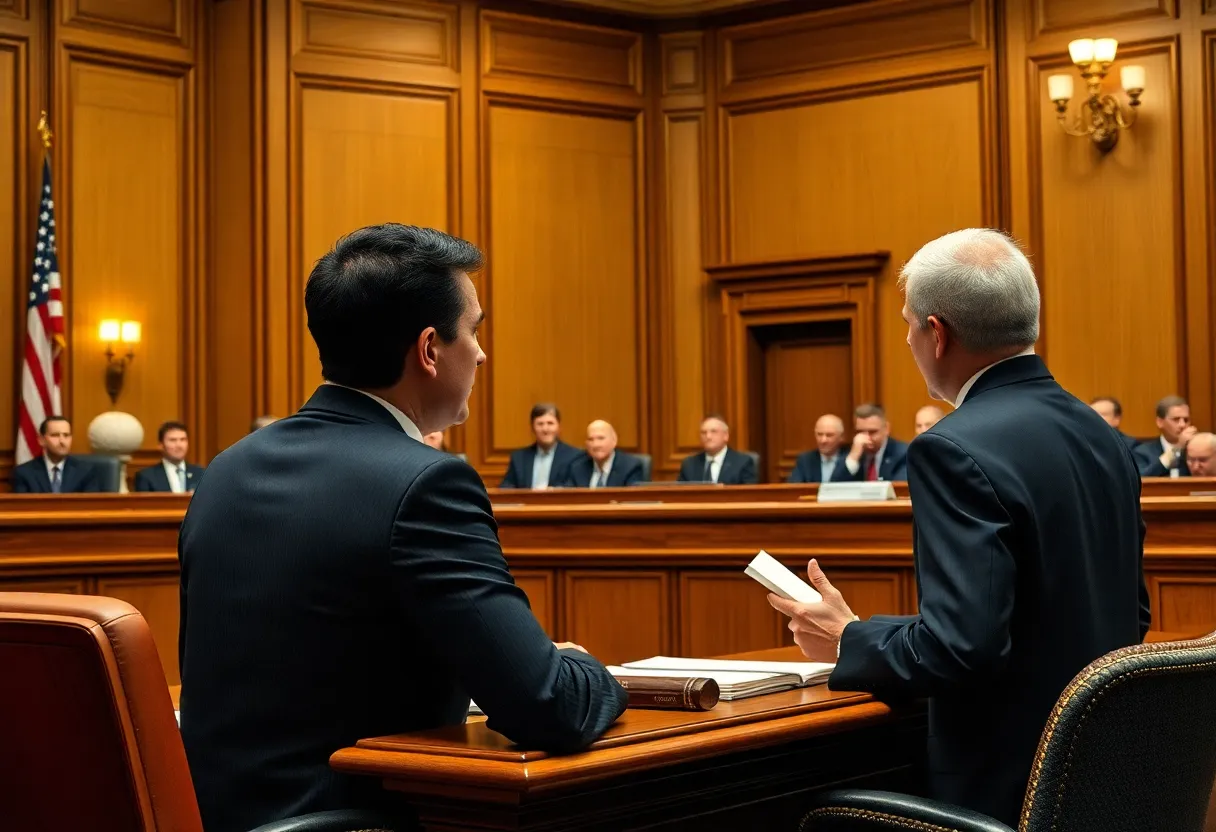

Lawyers analyze the implications of the Supreme Court's ruling on RICO damages in personal injury cases.
The Supreme Court’s recent 5-4 decision in Medical Marijuana, Inc. v. Horn signifies a pivotal shift in the legal landscape, allowing plaintiffs to claim RICO damages for economic losses linked to personal injuries. This ruling challenges previous limitations and raises critical questions about personal injury claims as lawyers prepare for potentially increased litigation. Notably, industries like pharmaceuticals and consumer products may face increased pressures from plaintiffs now empowered by this ruling, creating an evolving legal environment that requires careful navigation.
The legal landscape is undergoing a seismic shift following the Supreme Court’s narrow 5-4 decision in *Medical Marijuana, Inc. v. Horn*. This ruling opens the doors for plaintiffs to pursue RICO damages for business and property losses linked to personal injuries, a significant change that could transform how legal claims are structured and adjudicated.
The case centers around Douglas Horn, a truck driver whose career was derailed due to a positive drug test for THC from a CBD product he ingested in good faith. Horn alleged that the manufacturer had misled consumers through false advertising and engaged in racketeering activities that resulted in his job loss. Initially, the lower court ruled against him, aligning with prior decisions from the Sixth, Seventh, and Eleventh Circuits, which maintained that RICO does not allow recovery for economic losses connected to personal injuries.
This Supreme Court ruling resolves a long-standing divide among federal circuits regarding the applicability of RICO to cases involving personal injury-related economic losses. Justice Amy Coney Barrett, in her majority opinion, argued that the key aspect of RICO’s civil remedy is focused on the nature of harm rather than its source. The Court provided a pertinent analogy: while a business owner cannot claim damages for pain and suffering from an assault, they can still seek losses incurred due to business disruption stemming from those injuries.
The implication of this ruling is monumental. By removing the categorical barrier to recovering economic losses from personal injury, the decision aligns the legal framework closer to the broader interpretations upheld by the Second and Ninth Circuits. However, what remains unresolved is whether Horn’s job loss qualifies as an injury to business. This ambiguity opens the door for subsequent cases to grapple with the evolving definitions of economic injury under RICO.
Industries such as pharmaceuticals and consumer products should brace for impact. Plaintiffs are now positioned to file RICO claims more readily, linking their personal injuries to economic damages. The implications of civil RICO actions include treble damages and the associated reputational risks for companies which can result in increased pressure to settle claims that may have previously seemed implausible.
Despite the favorable shift for plaintiffs, pursuing a RICO claim remains no small feat. The statute requires rigorous proof of direct causation and a pattern of racketeering activity, thus maintaining high hurdles for potential claimants. Legal experts advise that both plaintiffs and defendants will need to adapt their strategies to navigate the complexities of this newly altered legal terrain.
Justice Kavanaugh, dissenting, warned that this ruling may lead to an influx of personal injury suits under RICO, complicating an already intricate legal landscape. This tension highlights the need for clarity regarding RICO’s application, a matter the Court suggested should be addressed by Congress rather than through judicial interpretation. Originally designed to target organized crime, RICO has significantly broadened to encompass a wider spectrum of commercial disputes.
The ruling in Horn has significant ramifications for civil litigation, increasing both financial stakes and strategic considerations in personal injury cases linked to economic harms. As this new chapter unfolds, legal professionals must remain vigilant and adaptive, ensuring their practices align with the shifting dynamics of RICO-related claims. In the world of litigation, staying ahead of these developments may be the key to success.
Lawyer News: Taylor Swift Subpoenaed in Legal Feud
Benton Accident & Injury Lawyers: Your Dallas Personal Injury Lawyers
Jones Walker Welcomes New Lawyer to Litigation Team
Patrick A. Salvi II: Leading the Charge in Personal Injury Law
U.S. Supreme Court Expands RICO Claims: A New Era for Lawyers
Supreme Court’s RICO Ruling Opens New Path for Lawyers
Supreme Court Ruling Expands RICO for Lawyers
How Can You Use Conversational Marketing to Improve Customer Interaction in Digital Marketing? Conversational marketing…
News Summary Frasers Property, a Singapore-based real estate company, has proposed a S$1.37 billion buyout…
News Summary South Carolina has enacted H.3049, making the non-consensual sharing of intimate images a…
News Summary In Minnesota, advancements in personal injury law are marked by dedicated attorneys like…
News Summary Minnesota's personal injury attorneys are adapting to new trends and challenges, including client…
News Summary The personal injury law landscape in Minnesota is transforming as injured individuals face…